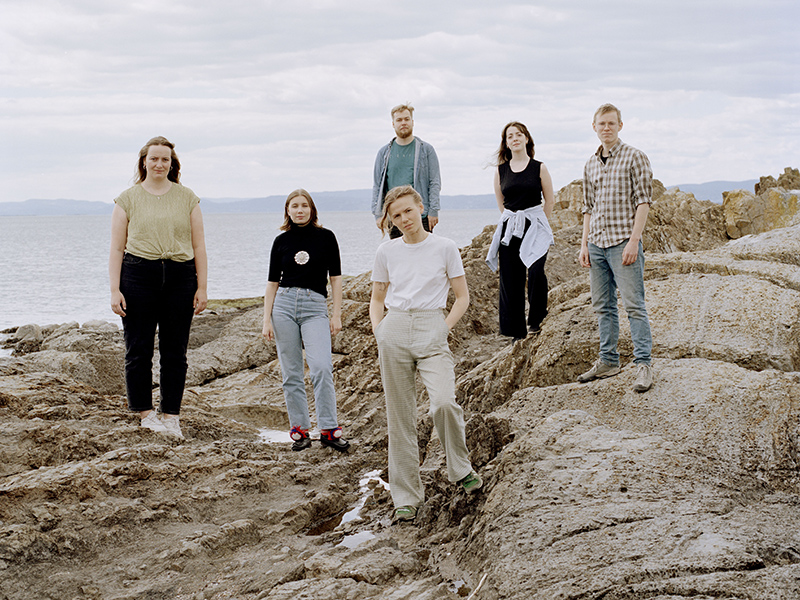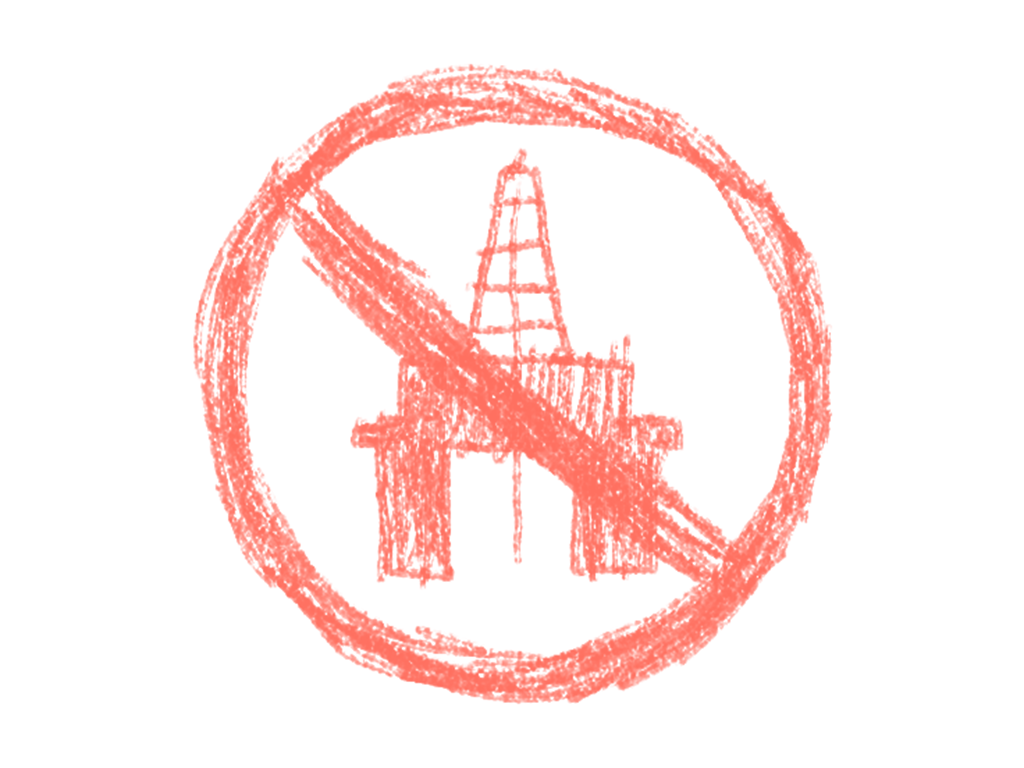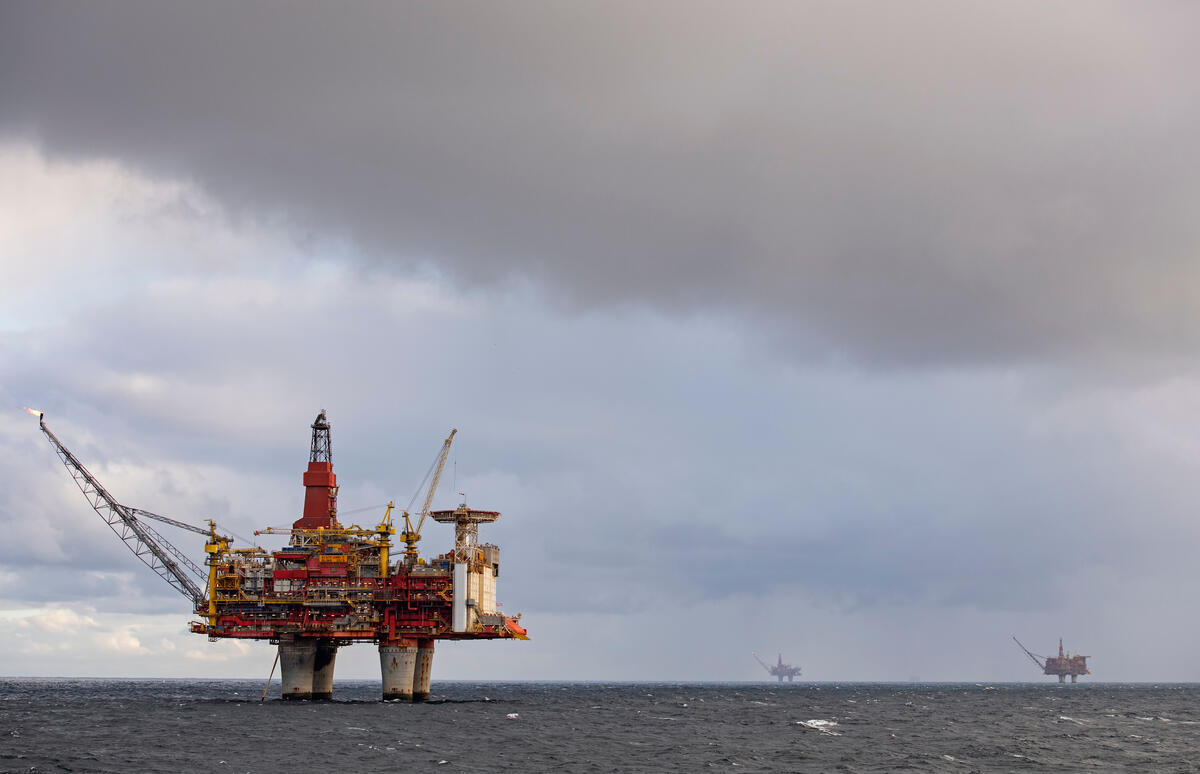
Application to the European Court of Human Rights
On 15 June 2021, Greenpeace Nordic (hereafter Greenpeace) and Young Friends of the Earth Norway, along with six young climate activists, announced that they will file an application with the European Court of Human Rights (ECtHR).
In 2016, the Norwegian government opened up new areas for oil drilling, further north in the Barents Sea than ever before, in the fragile and diminishing Arctic.
The applicants argue that the decision to issue licences for oil and gas extraction in the Norwegian Arctic violates their fundamental human rights and increases the risk of harm due to climate change. The government’s failure to assess the climate impact of the licences should lead the ECtHR to rule the decision invalid under the European Convention of Human rights (ECHR). More than 95% of the emissions from Norwegian oil originate from the combustion of fossil fuels, but these emissions are wholly excluded from the government’s environmental impact assessments. The applicants argue that this is in clear violation of the common ground established by EU Directives.
On 10 January 2021, the case was communicated by the Court, and the Norwegian state was given a deadline to respond to questions put forward by ECtHR by mid-April 2022. The deadline was later extended to 26 April.
The state’s response was published on 26 April, with the state calling for the case to be rejected by the ECtHR.
The plaintiffs were then given a deadline to comment on the state’s response by 14 June, later extended to 29 June.
Outside parties may also submit interventions, providing further information to the Court on issues in which they are competent. The following have been granted permission to intervene and submit their written comments:
- The United Nations Special Rapporteurs on Human Rights and the Environment, and on Toxics and Human Rights
- The European Network of National Human Rights Institutions
- The International Commission of Jurists (ICJ International) and ICJ Norway
- ClientEarth
- The Norwegian Grandparents’ Climate Campaign
After the plaintiffs respond, the Court could ask the government to submit additional observations, ask the parties to provide additional information, decide to hold an oral hearing, refer the case to the Grand Chamber, or reach a decision on admissibility and/or the merits without oral arguments.
It is unclear when the ECtHR will conclude the case. The normal processing time is three years, but the decision may come much sooner, as the case is defined as a possible “impact case”, which indicates that a judgment may have a significant impact on the Norwegian legal system, the European legal system or how effectively the European Convention on Human Rights works.
90 % of the applications which are filed with the ECtHR are rejected, and having exhausted national remedies increases the chance of admission. As the People vs. Arctic Oil court case has already exhausted national remedies by taking the case through three rounds in the Norwegian courts of law, the case is in a unique position to apply to the ECtHR.
The plaintiffs
The individual applicants include six young activists: Ingrid Skjoldvær (28), Gaute Eiterjord (26), Ella Marie Hætta Isaksen (23), Mia Cathryn Chamberlain (23), Lasse Eriksen Bjørn (25), and Gina Gylver (20). The applicants are personally impacted by the climate crisis, which is exacerbated by oil extraction in the Arctic, as climate change threatens their health, livelihood and future. The individual applicants are or have recently been members and representatives of Young Friends of the Earth Norway.
Young Friends of the Earth Norway (Natur og Ungdom) is the largest environmental youth organisation in Norway. The organisation represents more than 9,000 individual members and 60 local groups across the country. It is well-respected in Norway, where it is the youth branch of the Norwegian chapter of Friends of the Earth (Naturvernforbundet).
Greenpeace is a global leader in the fight for climate justice with offices in over 50 countries across the world. It is an independent global network that acts to change attitudes and behaviours, protect and conserve the environment and promote peace. Greenpeace does not accept money from governments, political parties or corporations. It is the independent regional office Greenpeace Nordic which is a co-plaintiff in this case.
European Convention on Human Rights
Articles 2 and 8 of the European Convention on Human Rights (ECHR) state that individuals have a right to life and private life. Within these two articles, the Court has previously interpreted a right to protection from environmental harm. Articles 2 and 8 were central in the Urgenda case, where the Dutch Supreme Court found that Dutch climate targets were too low given the scientific consensus about potential harm from climate change.
The six young Norwegian activists also allege a violation of Article 14 of the ECHR about discrimination based on age and birth cohort, the disproportionate burden the climate crisis imposes on youth, and discrimination based on membership of a minority population for three of the applicants who are from the indigenous Sámi people.
The ECtHR has not previously issued a judgement in a climate case but has recently communicated three cases, one about the consequences of forest fires in Portugal on young people, one about France’s insufficient climate action, and one about the consequences of heatwaves in Switzerland on senior women. Both the French and the Swiss cases have been referred to its Grand Chamber.
Report by the Norwegian National Human Rights Institution
The Norwegian National Human Rights Institution (NHRI) is an independent public body advising the parliament on matters of human rights. Its role is to strengthen the implementation of human rights in Norway in accordance with the Constitution, the Human Rights Act and international human rights law.
In the aftermath of the Supreme Court judgement in Norway, the Ministry of Oil and Energy asked NHRI for guidance on ways to follow up on the 2020 judgement from the Supreme Court. In its report, presented to the government on 18 March, the institution finds that none of the oil and gas fields approved after the Supreme Court’s judgement has assessed exported GHG emissions. Hence, the institution argues that these new fields are invalid.
However, its main conclusion is more interesting: NHRI believes that the climate impact of exported emissions must undergo an impact assessment in the application stage for new production. If the assessment report shows that the approval of the licence will not be compatible with limiting global warming to 1.5 °C degrees, the state has an obligation under Article 112 of the Constitution to reject the plan on the basis of climate risks.
Further, the institute points to the IEA and the IPCC, and their conclusion that limiting global warming to 1.5 °C degrees is incompatible with opening up new oil and gas fields.
The findings of this report have caused a great deal of unprecedented political controversy amongst the government majority in favour of the further exploration of the Norwegian continental shelf.
International relevance and possible outcomes
This ECtHR case could potentially set an international precedent. Because these rights are universal, judges around the world are taking into account the interpretations of other jurisdictions. In addition, if the European Court of Human Rights affirmed that states are responsible for the assessment at the earliest possible stage of the climate impacts of their greenhouse gas emissions even after export, it could have an impact on both courtrooms and boardrooms around the world. As with the Urgenda case in the Netherlands, we can expect courts around the world to look to this case to guide and inspire the interpretation of the rights invoked in their domestic legal systems.
The Applicants are alleging that the Norwegian government has failed to take the necessary and appropriate measures to safeguard their fundamental human rights. As such, the Applicants are asking the Court to declare that the rights of the Applicants have been violated and order the Norwegian State to conduct at the earliest possible stage a full assessment of the cumulative climate impacts of the disputed licences including consumption emissions (i.e. “exported emissions”), applying the precautionary approach and the best available science and evaluate whether they are compatible with the Paris Agreement temperature target.
If the ECtHR issues this order, it could result in the application of a “Paris test” of new Norwegian oil and gas expansion, and vindicate the rights of the Applicants.
The ECtHR is not a supranational body with the power to overrule judgments from national courts of law. However, through a finding of an infringement and subsequent orders to remedy it, the ECtHR may instruct the Norwegian State to take all necessary and appropriate measures to amend the environmental damage that is harming and will continue to harm the Applicants.
Having the case accepted for consideration is a victory in itself, as 90% of applications to the ECtHR are rejected. If the application is admitted, this is a recognition that the question of Norwegian oil and gas extraction is important enough to be heard by an international court.
The background
On 18 October 2016, with the backing of a wide coalition, Greenpeace and Young Friends of the Earth Norway filed a historic legal case against the Norwegian government, challenging the granting of new oil drilling licenses in a newly opened area for the first time in 20 years.
The environmental organisations argued that this violated the right to a healthy and safe environment, which is protected by the Norwegian Constitution, and, further, that this drilling would make it impossible for Norway to meet its obligations under the Paris Agreement.
The case was heard in the Oslo District Court in November 2017, then in the Court of Appeal in Oslo in November 2019, and finally in the Supreme Court in November 2020. It is the world’s first case to challenge drilling for new oil and gas based on the Paris Agreement, and it is the first time the environmental rights contained in Norwegian Constitutional Article 112 have been invoked in Court.
Read more about the history of the case here.
The Paris Agreement
Norway was among the first countries in the world to sign the Paris climate agreement and the first industrialised nation to ratify it. The Paris Agreement commits its signatories to:
“Holding the increase in the global average temperature to well below 2 °C above pre-industrial levels and pursuing efforts to limit the temperature increase to 1.5 °C above pre-industrial levels, recognizing that this would significantly reduce the risks and impacts of climate change.”
The 1.5 °C goal of the Paris Agreement means that Arctic oil must stay in the ground. In light of climate science and the sheer amount of oil currently discovered or in production, the world will have no chance of staying below a 1.5 °C temperature increase if further Arctic oil is extracted.
Granting new licences in the Arctic cannot be reconciled with Norway’s commitments, expressed in its signing and ratifying the Paris Agreement.
After having broken new ground in the Norwegian courts of law, by bringing to light the constitutional right to a healthy environment, the People vs. Arctic Oil continues to be a groundbreaking and innovative case, taking to court the right to be protected from dangerous climate change for all citizens and youth and future generations in particular. The fight for a liveable future is taking place in the streets, in school strikes and in demonstrations all around the world. As the case proceeds to the European Court of Human Rights, it presents a chance for future generations to have their voices heard. The outcome is up to the Court.


